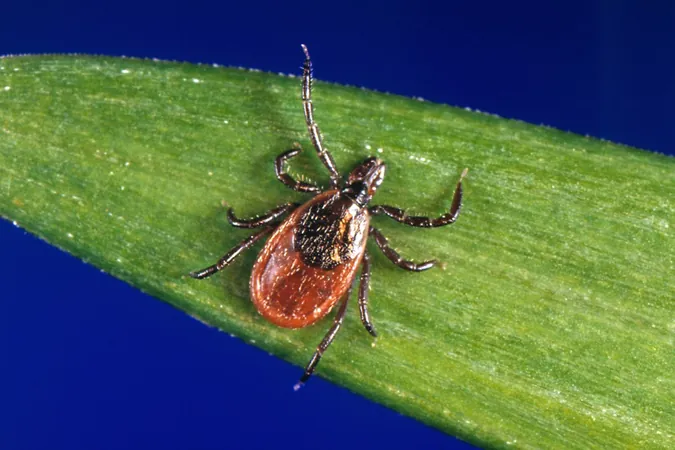
Will Genetically Modified Mice Rescue Nantucket from Lyme Disease?
2025-09-22
Author: Emma
A High-Tech Solution to a Growing Lyme Disease Crisis
Imagine a world where a tiny creature could save a charming Massachusetts beach town from a disease outbreak. That’s exactly what scientists on Nantucket Island are daring to achieve with genetically modified mice—aimed at tackling the alarming spread of Lyme disease that already afflicts 15% of the island’s residents.
Targeting the Root Cause: Wild Mice
Nantucket’s plan involves targeting wild mice, the primary carriers of the Lyme bacteria. Researchers are betting on the idea that by engineering these mice to be immune to the disease and subsequently releasing them into the wild, they can diminish the population of mice that spread Lyme, as reported by CBS News’ '60 Minutes'.
Understanding Lyme Disease: A Serious Threat
Lyme disease is more than just a summer nuisance. Transmitted through infected ticks, this bacterial infection can unleash a barrage of symptoms—ranging from fever and rash to arthritis and even facial paralysis. Ignoring it can lead to severe health complications, affecting the heart, joints, and nervous system.
A Perfect Storm for Ticks on Nantucket
The island's tick troubles date back to the 1920s, when two female deer were introduced, setting the stage for a thriving deer population, which fed the tick community. The situation worsened in the 1950s when conservation efforts created rich habitats for ticks, allowing them and their mouse hosts to flourish exponentially.
Innovative Research Leads to Hope
Kevin Esvelt, a pioneer in genetic engineering from MIT, alongside researcher Joanna Buchthal, has dedicated nearly a decade to this innovative animal control strategy. Their aim? To inject a gene that produces Lyme disease antibodies in mice. This would create a new generation of mice that cannot carry Lyme, ultimately leading to a decline in the disease’s prevalence.
Next Steps: Community Approval and Federal Oversight
The proposed initiative involves releasing thousands of these engineered mice on Nantucket, beginning in the winter when natural mouse populations are at their lowest. The researchers have already shared their ambitious plan with local residents during town hall meetings, but before any action can be taken, they need community approval and regulatory clearance.
A Potential Game Changer for Lyme Disease Affected Communities
If all goes well, the first test release could occur on a private field before officially launching their mission on Nantucket. The disease claims nearly 500,000 American lives each year, but with breakthrough strategies like these, the tide could soon turn against Lyme disease. Will Nantucket become the beacon of hope in the battle against this persistent ailment?









 Brasil (PT)
Brasil (PT)
 Canada (EN)
Canada (EN)
 Chile (ES)
Chile (ES)
 Česko (CS)
Česko (CS)
 대한민국 (KO)
대한민국 (KO)
 España (ES)
España (ES)
 France (FR)
France (FR)
 Hong Kong (EN)
Hong Kong (EN)
 Italia (IT)
Italia (IT)
 日本 (JA)
日本 (JA)
 Magyarország (HU)
Magyarország (HU)
 Norge (NO)
Norge (NO)
 Polska (PL)
Polska (PL)
 Schweiz (DE)
Schweiz (DE)
 Singapore (EN)
Singapore (EN)
 Sverige (SV)
Sverige (SV)
 Suomi (FI)
Suomi (FI)
 Türkiye (TR)
Türkiye (TR)
 الإمارات العربية المتحدة (AR)
الإمارات العربية المتحدة (AR)